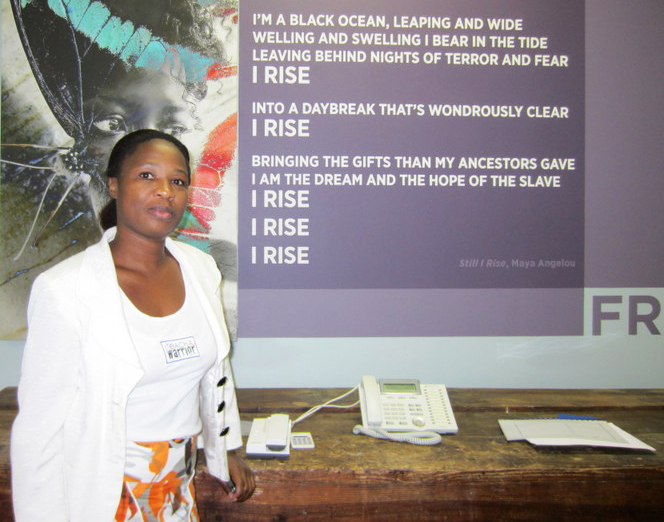A new Ragon study in KwaZulu-Natal, South Africa is enrolling its sixth cohort of women this month in a longitudinal study in order to identify and analyze participants immediately after they are infected with HIV. Project staff is simultaneously providing job and life-skills training to the women in order to provide support to a community ravaged by the HIV epidemic.
The FRESH study (Females Rising through Education, Support, and Health) is located in the Umlazi Township, where HIV-prevalence rates in young women rise from less than 1% at age 15 to 66% at age 23. Investigators are recruiting and collecting blood samples from 300 non-infected women aged 18-23 so that they can detect and study those who naturally acquire HIV from the earliest point of infection. To address the underlying poverty of participants that puts them at risk of HIV, study staff is concurrently providing an intensive empowerment, life-skills and job readiness curriculum (‘FRESH-start’) that coincides with the blood sample collection.
The “FRESH-Start” core curriculum consists of twice-weekly three-hour sessions, focused on three segments: (1) self-exploration and risk assessment to create a talent-needs profile, which will inform referrals and guide job and educational planning, (2) development of ‘hard skills’ including typing, computer basics, accounting and exposure to income-generating options, and (3) job-readiness, which includes interview skills, attire, professionalism, CV preparation, and selection of work-internships.

FRESH Administrative Clerk, Simangele Zungu at the entrance of the FRESH Clinic
With 40% unemployment in the local communities in KwaZulu-Natal, a school drop-out rate of 30%, and a 21% increase in teen pregnancy, poverty is a key factor in the exceptionally high HIV burden in KwaZulu-Natal. Additional factors include low self-esteem, lack of positive role models, and poor access to social services, which correlate with higher-risk behavior. The FRESH intensive 12-month core curriculum will adequately empower young women in the FRESH cohort from impoverished backgrounds, to gain and keep meaningful employment, and will help fulfill our obligation to provide an immediate advantage to patients for their involvement in this study.
One of the participants from the first cohort, who has now been enrolled in FRESH for seven months, says, “We, as FRESH girls we are very keen to have such an opportunity of a life time to be engaged in the journey of trying to help our nation with the HIV pandemic. I’m sure every girl will be very proud to play the part. At the same time we receive psychosocial support, which, of course even, our parents are failing dismally to help us with. We want to thank everyone who is involved and we are hoping that the vaccine be discovered and we also believe that we will leave this place not being the same but grown individuals who will make a big impact not only in our community but to the whole nation as well.”
FRESH, which is partially funded by a grant from the Bill & Melinda Gates Foundation, is part of a larger Ragon project to study the development of broadly neutralizing antibodies (bNAbs) in HIV-1 infection and following immunization. Ragon investigators believe that bNAbs may hold clues to the so far elusive search for an HIV vaccine.
Learn more about FRESH and the bNAbs study.


 Ragon Institute
Ragon Institute 